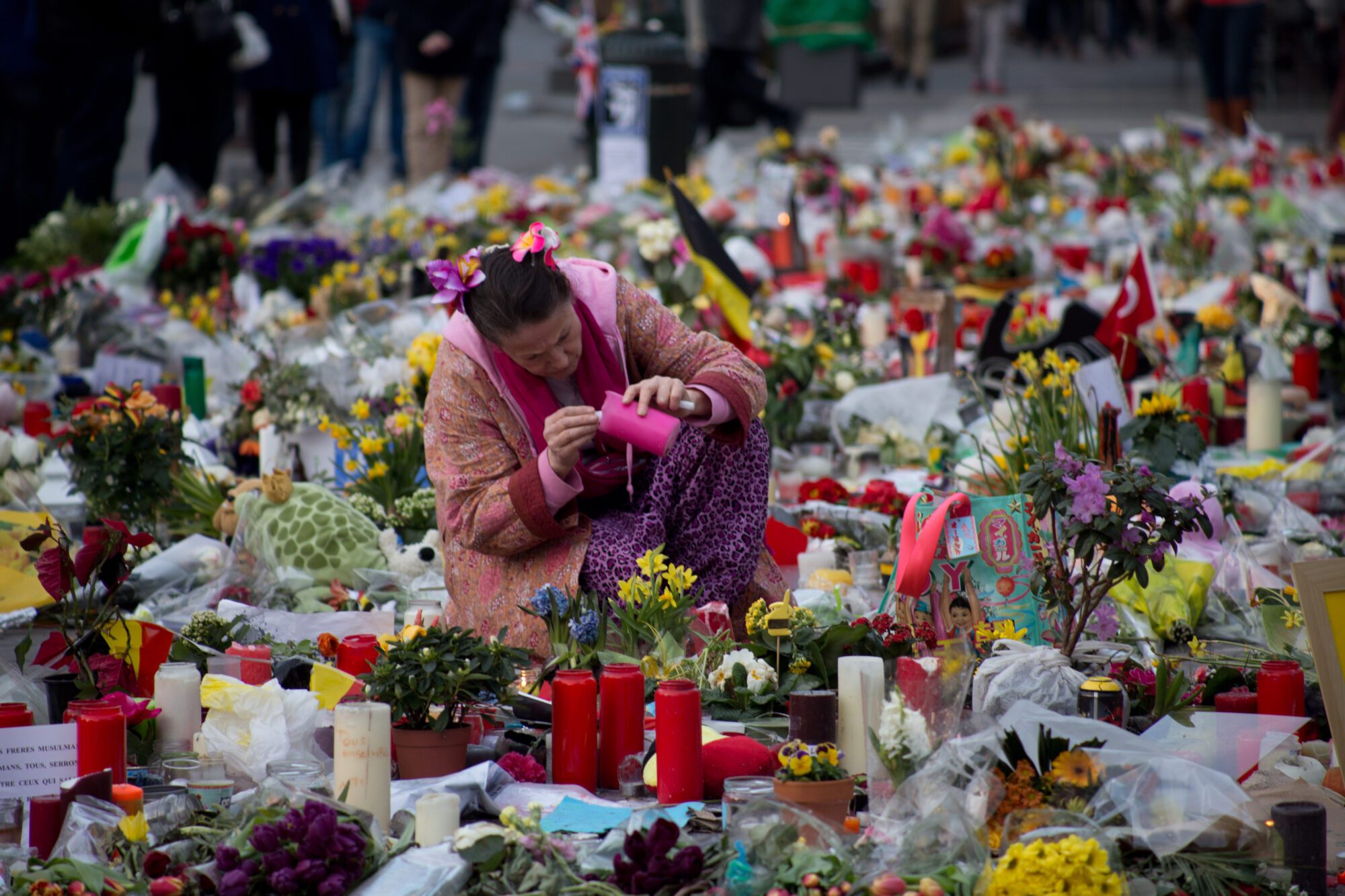
On Monday morning, December 5th, the Brussels court of assizes, Belgium’s highest court, kicked off the largest trial in Belgian history. Ten jihadists, of which one is presumed dead, stand accused of being responsible for the 2016 mass murder of 32 people in the Belgian capital.
On the morning of March 22th, 2016, two jihadists blew themselves up in the departure hall of Brussels-Zaventem airport. One hour later, a third followed their example in a metro station in the busy European district. In their wake, 32 persons of various nationalities lost their lives while several hundred were wounded. These suicide attacks were subsequently claimed by the Islamic State (IS), which less than a year earlier (November 13th, 2015) had carried out similar attacks in Paris and Saint-Denis, killing 130.
On day one of the trial, five days after having selected a jury, presiding judge Laurence Massart confirmed the identities of the defendants and outlined the schedule for the trial which is expected to last until June of next year.
Among the defendants is Frenchman Salah Abdeslam—the only surviving member of the November 13th jihadist cell—who was arrested in Brussels four days before the March 2016 attacks.
Facing him and eight others are more than a thousand people (either in person or by representatives) who are demanding compensation for damages. These are parents or relatives of the 32 killed, and people who were themselves injured by the explosions or traumatized by what they witnessed that day. Earlier in October, one 23-year-old female survivor chose to be euthanized over “irrevocable psychological suffering.”
Various media, Belgian and otherwise, have reported that it is unknown to what degree the defendants will participate or indeed which parties among the aggrieved would be willing to testify publicly.
Danielle Iwens, who on that day was working behind a check-in counter at Zaventem airport, will not go to the trial for fear of experiencing “too much stress.” To Agence France Presse, she said it was “not good for my health, physically it is too hard.” Now 58, she has lost 60% of her hearing in one ear and can no longer concentrate as she did before the attacks.
Others regard it as their responsibility to bear witness to what has happened. Philippe Vandenberghe, a 51-year-old computer scientist, fully intends to testify. He volunteered to help when the hall of the airport was left devastated after the double explosion. Keenly remembering bodies strewn on the ground, some dismembered, he feels the trial must be “the beginning of something else,” and hopes that the victims’ suffering “will be recognized, that is what is important.”
One of the defendants, Osama Krayem (a Swedish national accused of planning to be a second bomber at the metro) has outright refused to stand and answer questions—an echo of his attitude last Wednesday when the jury was being put together.
Another, Mohamed Abrini, has complained about “humiliating conditions” while being transported from prison to the courtroom. Abrini speaks of “revenge” being enacted on him by the state, as it forces him to listen to “satanic music” through headphones during the journey while blindfolded. According to a lawyer, the music in question is of the ‘hard rock’ variety.
Should his concerns remain unaddressed, Abrini has threatened to remain silent for the rest of the trial. Abrini, so prosecutors say, fled the airport the day of the attack without detonating his suitcase of explosives.
Abrini is not the only one who has made complaints. Various lawyers of other defendants have also raised eyebrows about the conditions of their clients during detention and transportation. Specifically, they question the defendants being frisked while nude, a safety procedure that involves an examination of the anus.
In accordance with Belgian court procedure, the defendants have not yet declared whether they are innocent or guilty.
Salah Abdeslam, who was sentenced in June by the French state to life imprisonment for the November 13th attacks, is at risk of receiving another sentence in Belgium. Abdeslam, Mohamed Abrini, Sofien Ayari, Osama Krayem, and all other defendants (Ibrahim Farisi excepted) are facing life imprisonment for “terrorist assassinations and attempted assassinations.”
Since Farisi was merely involved in the attacks’ logistics, the Belgian-Moroccan is being prosecuted for “participating in a terrorist group’s activities,” for which he faces up to ten years in prison. The tenth man is being tried while absent as he is presumed dead in Syria.
In any case, from Tuesday until Thursday, a 468-page indictment will be read. From December 19th and onwards, defendants are to be questioned, while the first victims’ testimonies will be heard in mid-January.
